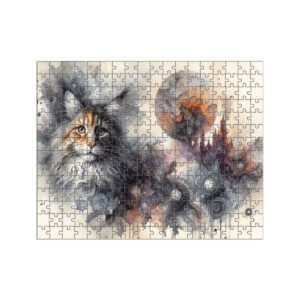
Explore & Play
Discover interesting topics and solve the accompanying crossword puzzle.
Man’s name crossword: Origins and Cultural Impact Explored
Table of Contents
Man’s name crossword
You can either fill in the crossword puzzle directly on this page or click the button in the bottom right corner to print it for free.
——————————————
Exploring Famous Man’s Names: Origins, Meanings, and Cultural Impact

Introduction
Imagine a name as more than just a label—a thread woven through time, culture, and identity. Names carry stories, values, and histories that shape how we see ourselves and connect with the world around us. From ancient kings to modern leaders, famous men’s names hold a special place in this tapestry, offering windows into the past and reflections of society’s evolving ideals.
This article sets out to explore some of these powerful names—where they come from, what they mean, and the remarkable figures who have carried them. Along the way, we’ll uncover surprising facts and consider how these names continue to resonate today, inviting you to think about the stories behind your own name, and those that have helped shape history.

Leonardo: The Brave Lion
Step into a world where a name roars with strength—Leonardo. Meaning “brave lion,” this name carries with it a quiet power and a hint of nobility. Picture the lion, regal and fearless, prowling through ancient stories and art alike. It’s no surprise that Leonardo has remained a beloved choice, ranking #84 in the U.S. by 2025—a steady reminder that boldness never goes out of style.
The name first captured the world’s imagination through Leonardo da Vinci, the Renaissance polymath whose curiosity knew no bounds. His sketches, inventions, and paintings, like the enigmatic Mona Lisa, still speak across centuries, bridging art and science with astonishing grace. But Leonardo isn’t just a name from the past—it’s alive in today’s culture with actors like Leonardo DiCaprio, whose own star shines with a mix of talent and tenacity.
Beyond famous faces, the symbolism tied to lions enriches Leonardo’s meaning across cultures. Lions represent courage, leadership, and protection—traits that echo deeply in human stories everywhere. So when you hear “Leonardo,” think not only of the man but of a legacy woven with strength and inspiration, inviting us all to be a little braver in our own lives.

Barack and Nelson: Names of Leaders and Inspirations
Step into the story of two names that have echoed through history as symbols of courage, resilience, and transformative leadership. Barack and Nelson aren’t just names; they carry legacies that ripple far beyond their syllables.
Barack finds its roots in Swahili, meaning “blessed” or “one who is blessed.” It’s a name that seemed destined for great influence, famously borne by Barack Obama, the 44th President of the United States. Obama’s rise reshaped the political landscape and inspired a generation worldwide — not just for his historic presidency, but for how he embodied hope and change. His speeches stirred hearts, weaving together personal stories and a vision for a more inclusive future.
On the other side stands Nelson, a name rooted in English tradition, meaning “son of Neil,” but carried to global prominence by Nelson Mandela. Mandela’s life was a tapestry of sacrifice and steadfast commitment to justice. From prison cells on Robben Island to the presidency of South Africa, Mandela became a living testament to the power of forgiveness and reconciliation after decades of apartheid’s darkness. His legacy stretches beyond borders, inspiring civil rights movements everywhere.
What’s especially touching is how Barack Obama, himself a modern icon of change, openly expressed profound admiration for Nelson Mandela—an acknowledgment that these names represent more than individuals; they embody shared struggles and the unyielding pursuit of dignity for all.
Together, Barack and Nelson remind us that names can become beacons. They invite us to reflect on the qualities we value—leadership tempered with empathy, strength grounded in compassion. These names don’t just mark people; they mark moments when history bends toward justice, urging us all to carry their light forward.

Muhammad and Michael: Spiritual and Religious Resonance
Step into a world shaped by names that echo through centuries and across continents. Take Muhammad and Michael—two names carrying immense weight, each woven deeply into the spiritual and cultural fabric of millions.
Muhammad, meaning “praised one,” is more than just a name—it’s a beacon of faith and history. It holds the distinction of being the most popular boy’s name in England and Wales in 2023, a title it maintained into 2025. This enduring preference speaks volumes, reflecting the name’s profound resonance within Muslim communities and beyond. It’s a name that carries the story of the Prophet Muhammad, whose life and teachings continue to influence countless lives. Hearing the name invites images of reverence, compassion, and a legacy that shaped civilizations.
Then there’s Michael, a name that literally asks, “Who is like God?” It carries an almost mythic energy, tied to the archangel Michael—a protector and warrior in Christian traditions. From biblical tales to legend, Michael stands as a symbol of strength, justice, and divine authority. It’s a name that has traveled through time, embraced across cultures, inspiring countless people with its angelic aura.
Together, Muhammad and Michael highlight the power of names to hold spiritual and cultural significance. They’re reminders of traditions that stretch far beyond personal identity, echoing beliefs, values, and stories that continue to shape the way communities see themselves and the world. In the simple act of naming, we touch something timeless—an enduring connection between past, present, and the shared human experience.

Albert, William, Stephen, and David: Nobility and Intellectual Legacy
Walk with me for a moment through halls of history, where names like Albert, William, Stephen, and David have echoed—each carrying stories of power, intellect, and identity. These aren’t just names; they’re legacies carved into the fabric of culture.
Albert conjures images of thoughtful nobility. Originating from the Old Germanic words “adal” (noble) and “beraht” (bright), Albert means “noble and bright.” It’s a name that graced royalty, none more notable than Prince Albert of Saxe-Coburg and Gotha, whose partnership with Queen Victoria helped shape a modern British monarchy. Fast forward to the 20th century, and the name surfaces in the brilliance of Albert Einstein—his revolutionary ideas still lighting the way for science and curiosity today. Albert is a bridge between the regal and the revolutionary, embodying a quiet kind of intellect and dignity.
Stephen, meanwhile, carries the Greek origin meaning “crown” or “wreath,” a symbol of honor and triumph. Stephen Hawking, the name’s modern bearer, revolutionized our understanding of black holes and the cosmos, despite his physical limitations. His story—of resilience, genius, and wit—softens the name with human vulnerability wrapped in awe-inspiring intellect. This name has threaded itself through scholars and leaders who challenge what’s possible.
William, a name of ancient Germanic roots meaning “resolute protector,” stands tall among classic royal names. From William the Conqueror, whose invasion of England in 1066 reshaped history, to William Shakespeare, whose words molded English literature, the name carries a weight of leadership and creativity. It suggests steadfastness and boldness—a protector not only of kingdoms but of culture itself.
David, of Hebrew origin meaning “beloved,” is another name steeped in history and reverence. From the biblical King David, the shepherd turned monarch who united Israel and composed psalms, to countless leaders and artists named David, the name resonates with themes of courage, faith, and artistry. It’s a name that carries warmth and strength—beloved across generations and cultures.
Together, these names form a constellation of nobility and intellect, each shining with stories that invite us to ponder the qualities we admire: nobility with brightness, crowns of knowledge, resolute protection, and beloved courage. They remind us that names are more than labels—they’re vessels of identity, aspirations, and human stories passed from one era to the next. Just as these figures once walked beneath the same sky, their names continue to inspire us to carry our own histories—boldly and thoughtfully—into the future.

Elvis and Other Iconic Names: Popular Culture and Unique Origins
Imagine the roar of a crowd, the glint of rhinestones under stage lights, and a voice that changed the soundtrack of a generation. Elvis Aron Presley—yes, Aron with a single “r,” a rare biblical twist his mother chose—became more than just a name; he became a cultural force. This subtle spelling difference whispers a personal story, a mother’s preference wrapped into the fabric of a legend whose impact still echoes in music and popular culture today.
Elvis wasn’t merely a singer; he was a symbol of rebellion and change in the 1950s, blending country, gospel, and rhythm and blues into a fresh, electrifying sound that invited young people to dance—and dream—differently. His name, much like a secret handshake, instantly connects to a moment when music broke barriers and reshaped society’s rhythms.
Beyond Elvis, names like Michael and David also stand tall in popular culture, extending their reach well past their historical or religious roots. Michael, for instance, has been the moniker of countless artists, athletes, and icons, linking its ancient meaning—“Who is like God?”—to a modern tapestry of creativity and achievement. David carries the legacy of a shepherd boy turned king, but in today’s world, it’s a name worn by writers, actors, and leaders who continue to write new chapters of courage and creativity.
These names are living stories, threading the past into our present lives. They remind us that a name is never just a word—it’s a vessel of identity, aspiration, and the enduring power of human connection. Whether echoing from a concert stage or whispered in quiet moments of history, the names of men like Elvis, Michael, and David invite us to discover the unique tales behind every syllable, waiting to be heard anew.
Share to...
I hope you enjoy the content.
Want to receive our daily crossword puzzle or article? Subscribe!
You may also be interested in
Share to…
Want to receive our daily crossword puzzle?
-
Jigsaw Puzzles
Maine Coon Cat Ink Wash Puzzle 250 | 300 | 500 Pieces
kr 348,00 – kr 439,00Price range: kr 348,00 through kr 439,00 Select options This product has multiple variants. The options may be chosen on the product page -
Jigsaw Puzzles
Chinese Zodiac Rabbit Jigsaw Puzzle – Ink Art Series 250 | 300 | 500 Pieces
kr 348,00 – kr 439,00Price range: kr 348,00 through kr 439,00 Select options This product has multiple variants. The options may be chosen on the product page -
Jigsaw Puzzles
Lofoten Serenity: Abstract Puzzle 250 | 300 | 500 Pieces
kr 348,00 – kr 439,00Price range: kr 348,00 through kr 439,00 Select options This product has multiple variants. The options may be chosen on the product page

















